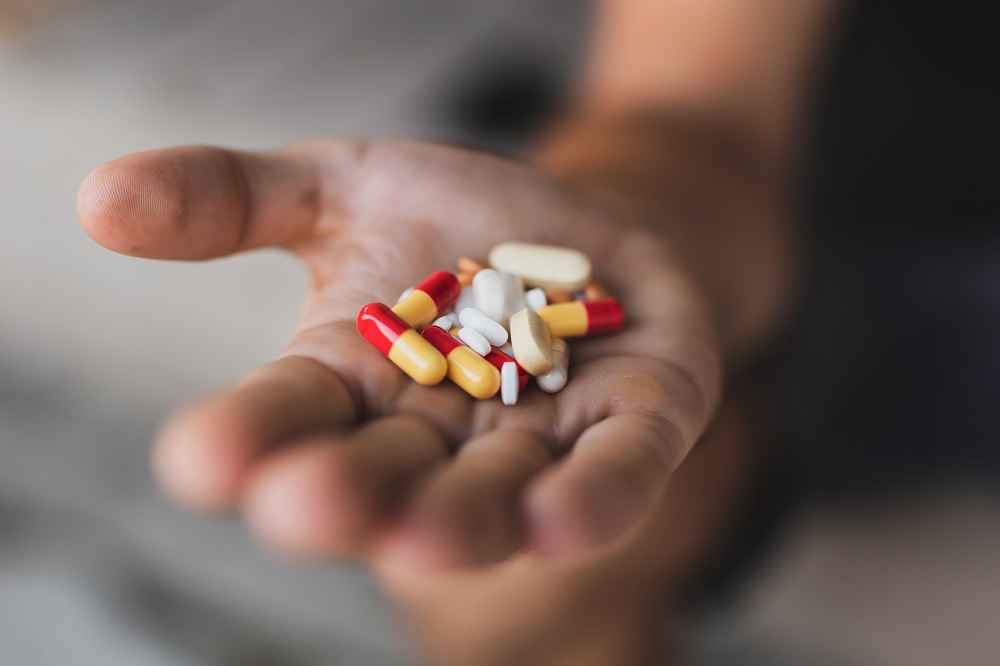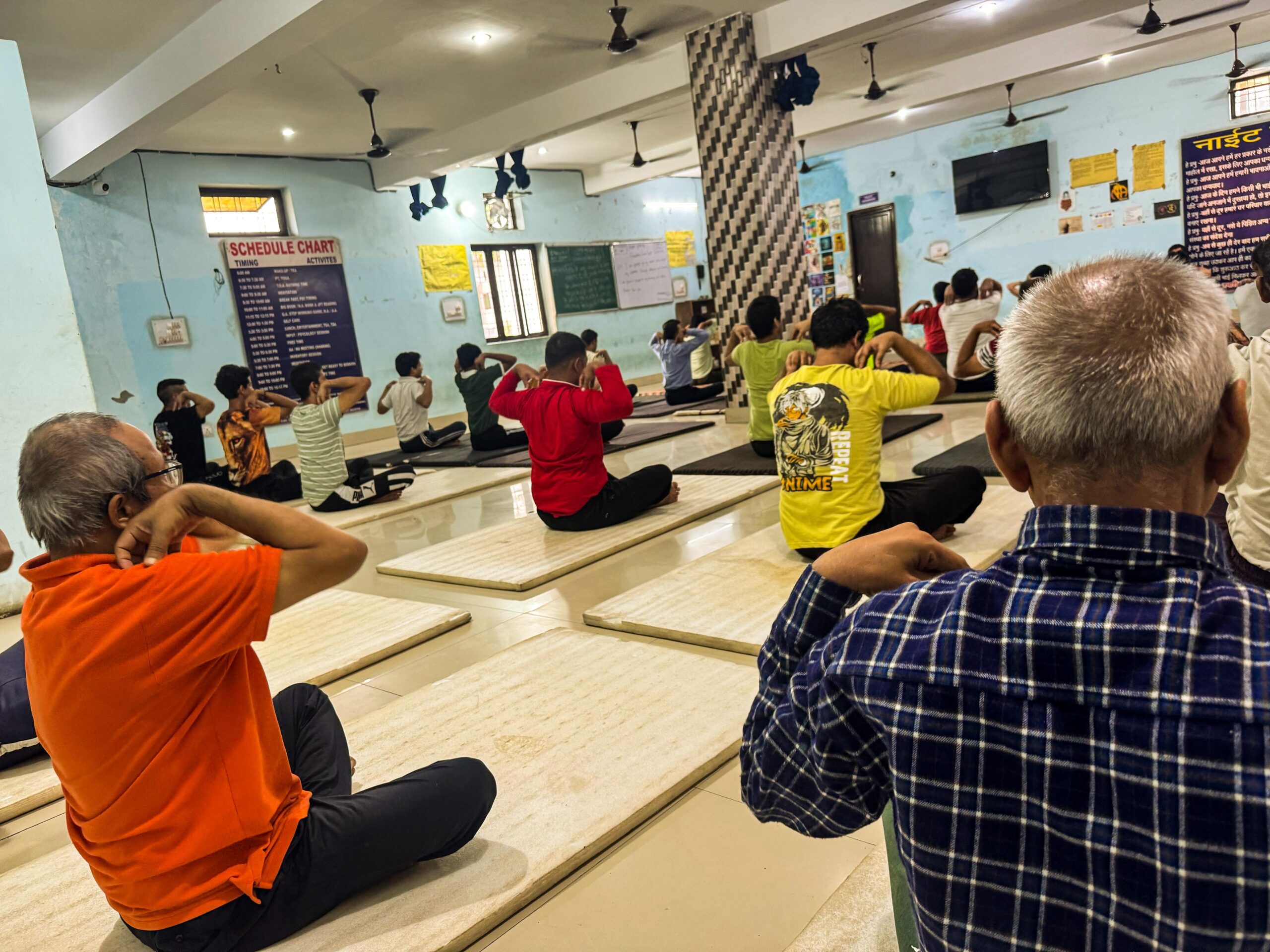In India, drug addiction is often seen as something that happens to “other” people—people far away from our homes, our schools, and our families. But the truth is, it can affect anyone, regardless of age, background, or education. Sadly, there are many myths about drug addiction that keep people from understanding the real problem.
At Aarogya Sewa Samiti, we have seen firsthand how these myths damage lives. They are not harmless—they create stigma, prevent people from asking for help, and make recovery harder. If we want to fight drug addiction, we first need to fight the wrong ideas surrounding it. This is especially important for young people, who are more likely to believe what they hear from friends, movies, or social media without checking the facts.
Why Myths About Drug Addiction Are So Common
Before we break the myths about drug addiction, it’s important to understand why they spread so easily in India:
-
Cultural Silence: Talking about drugs is often seen as shameful or disrespectful, so the topic is avoided.
-
Media Influence: Movies and shows sometimes show exaggerated or unrealistic images of addiction.
-
Peer Pressure: Wrong ideas are passed among friends, especially in schools and colleges.
-
Lack of Education: Many schools do not provide detailed education about drugs and their effects.
Because of these reasons, myths about drug addiction continue to spread, making it harder to prevent and treat the problem.

Common Myths About Drug Addiction in India
1. “Addiction Only Happens to Bad People”
One of the most damaging myths about drug addiction is that only “bad” people or criminals get addicted. This is completely false. Addiction is not about morality—it is a medical condition that changes how the brain works.
Even people who are kind, hardworking, and honest can fall into addiction. Stress, curiosity, peer pressure, and mental health issues can all lead someone into drug use, regardless of their character.
2. “It’s Just a Matter of Willpower”
Many believe that if someone really wants to quit drugs, they can do it easily. But addiction is not just a bad habit—it’s a brain disease. Once a person is addicted, the brain craves the substance and struggles to function without it.
This myth about drug addiction often leads people to judge addicts as “weak,” instead of understanding that they need treatment and support. Recovery takes more than willpower; it often requires counseling, medical help, and family support.
3. “You Can Get Addicted After One Try”
Some drugs can be addictive after just a few uses, but for most substances, addiction develops over time. It often starts as occasional use—maybe at a party or with friends—and slowly becomes a regular habit.
This myth about drug addiction can work in two harmful ways:
-
It scares some people so much that they refuse to talk about drugs openly.
-
It makes others believe they are “safe” if they only use drugs once in a while, which is dangerous thinking.
4. “Only Illegal Drugs Are Dangerous”
This is a common myth about drug addiction in India. Many think that only drugs like heroin, cocaine, or LSD are harmful. In reality, legal substances like alcohol, tobacco, and even prescription medicines can cause addiction and serious health issues.
In fact, prescription painkillers and cough syrups are among the most misused substances in India. Just because a drug is legal does not make it safe.
5. “Addiction is a Choice”
It is true that the first use of a drug is usually a choice. But over time, the brain becomes dependent, and the person loses control. They no longer feel “normal” without the drug.
This myth about drug addiction makes people blame addicts for their condition instead of offering help. Understanding that addiction is a disease can help us respond with compassion instead of judgment.
6. “Rehabilitation Centers Don’t Work”
Some believe that once a person is addicted, they can never recover, even with professional help. This is one of the most discouraging myths about drug addiction.
The truth is, many people recover fully after going through treatment programs. Yes, recovery can be challenging, but with the right medical care, counseling, and support systems, a healthy and drug-free life is possible.
7. “You Can Tell Who is Addicted by Looking at Them”
Movies often show drug addicts as thin, poorly dressed, and unhealthy. But in real life, many addicts appear completely normal on the outside. They might go to school, attend family events, and hold jobs while hiding their addiction.
This myth about drug addiction can make it harder to identify someone who needs help.
8. “Once an Addict, Always an Addict”
Some people believe that addicts can never truly recover. This is not true. Many people go through treatment and never use drugs again. Yes, there is a risk of relapse, but with strong support and lifestyle changes, complete recovery is possible.
This myth about drug addiction can destroy hope for those who want to change their lives.
9. “You Can Quit at Home Without Help”
Quitting drugs without medical supervision can be very dangerous. Some substances cause severe withdrawal symptoms—like seizures, depression, or extreme anxiety—that can even be life-threatening.
This myth about drug addiction keeps people from seeking safe, professional treatment, putting their health at serious risk.
10. “Talking About Drugs Encourages Use”
Many parents and teachers avoid talking about drugs because they believe it will make young people curious. In reality, open and honest conversations help teenagers understand the risks and make better choices.
Silence only increases the danger, because young people then get their information from unreliable sources.
How The Myths about drug addiction Affect Young People
For students, myths about drug addiction can be especially dangerous. You might:
-
Ignore warning signs in yourself or friends.
-
Feel ashamed to ask for help.
-
Believe you can “control” drug use, when in reality, it is controlling you.
Breaking these myths early means you can make better choices for your health and future.
Breaking the Myths about drug addiction: What We Can Do
-
Start Conversations: Talk openly about drugs in schools, families, and communities.
-
Share Real Stories: Hearing from recovered addicts can make the dangers feel real.
-
Get the Facts: Learn the science of how addiction works.
-
Encourage Treatment: Support those who seek professional help.
The more we speak honestly, the less power these myths about drug addiction will have.

How Aarogya Sewa Samiti Helps
At Aarogya Sewa Samiti, we are dedicated to fighting misinformation and supporting recovery. We run awareness programs, provide professional rehabilitation, and offer counseling for families affected by addiction.
Our mission is simple—replace fear and shame with truth and hope. We believe that breaking myths about drug addiction is the first step to recovery.
Conclusion
Drug addiction is not a crime, a weakness, or a hopeless condition—it’s a medical issue that needs treatment and understanding. By learning the truth and rejecting myths about drug addiction, we can create a society where people feel safe to ask for help and get the care they need.
Just as the right information can save lives, the right treatment center can change them. That’s why many trust Aarogya Sewa Samiti as the best nasha mukti kendra in Dehradun, where recovery begins with compassion and knowledge.
